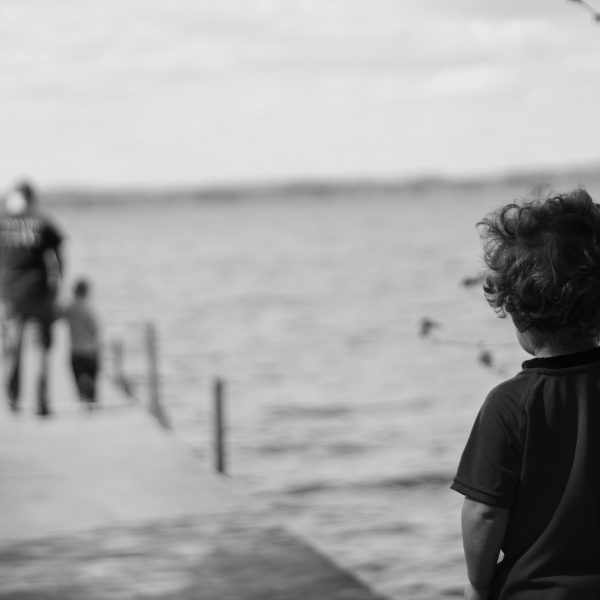Family Matters National Week of Action this week

Family Matters, Australia’s national campaign to ensure Aboriginal and Torres Strait Islander children and young people grow up safe and cared for in family, community and culture, is running a national week of action from 19-25 May, to highlight issues in out of home care for First Nations children, with an ultimate goal to eliminate the over-representation of Aboriginal and Torres Strait Islander children in out-of-home care by 2040.
Mick Dodson, Cheryl Axelby, Tony McAvoy and Hannah McGlade are amongst the Aboriginal leaders participating in the National Week of Action, helping to shine a light on the solutions that exist within community, and the role that a new federal government has to play in supporting communities to address this issue.
Family Matters is led by SNAICC – National Voice for our Children, and supported by a strategic alliance of around 150 Aboriginal and Torres Strait Islander and non-Indigenous organisations, working in unison to address issues in out-of-home care: referring to the care of a child outside the parental home, as required by the state government, including foster, residential and kinship care, family group homes and independent living. A number of early childhood education and care (ECEC) providers and representatives are members, including Community Early Learning Australia (CELA) and Goodstart Early Learning.
Members of the strategic alliance are organisations committed to the campaign principles, and keen to support the campaign, with membership of the Family Matters Strategic Alliance open to all non-government organisations, including statutory bodies.
The aim is to draw on the expertise, strengths and passions that every individual and organisation has to share, so that Family Matters has a strong, balanced and inclusive campaign capable of achieving its goal.
“When the ground-breaking Bringing Them Home report into the stolen generations was released in 1997, mainstream Australia was shocked to learn that Aboriginal and Torres Strait Islander children represented 20 per cent of all children living in out-of-home care. Now, nearly 20 years later, they are over 35 per cent.” a spokesperson said. “Despite numerous legal and policy frameworks protecting the cultural rights of Indigenous children, the rate of Aboriginal and Torres Strait Islander children in out-of-home care is almost ten times that of other children, and continues to grow.”
Aboriginal and Torres Strait Islander children are more than 11 times more likely to be removed from their families than other Australian children. The number of First Nations children being removed is “dramatically increasing by the year.”
Richard Weston, Family Matters Co-Chair, said “We need an approach underpinned by healing and supporting our communities – one that aims to address all the things that lead to contact with the child protection system, such as inadequate housing, trauma, family violence and poverty.”
Family Matters operates under six core principles, which underpin all campaign relationships, strategies and activities:
- Applying a child-focused approach
- Ensuring that Aboriginal and Torres Strait Islander people and organisations participate in and have control over decisions that affect their children
- Protecting Aboriginal and Torres Strait Islander children’s right to live in culture
- Pursuing evidence-based responses
- Supporting, healing and strengthening families
- Challenging systemic racism and inequities.
A range of short-term and medium-term targets support Family Matters in attaining their ultimate goal of eliminating over-representation by 2040, namely:
- For Aboriginal and Torres Strait Islander children to enjoy equal access to early intervention and prevention services as non-Indigenous children by 2020.
- For Aboriginal and Torres Strait Islander children in out-of-home care to enjoy equal rates of reunification with their parents or family as non-Indigenous children by 2025.
- To eliminate the over-representation in rates of notification of child abuse or neglect of Aboriginal and Torres Strait Islander children by 2030.
- To eliminate the over representation of Aboriginal and Torres Strait Islander children subject to a substantiation of child abuse or neglect by 2035.
- To eliminate the over-representation of Aboriginal and Torres Strait Islander children subject to an order of removal into out-of-home care by 2035.
To become involved with the work of Family Matters, interested organisations or individuals can
- Sign the Family Matters Statement of Commitment to show support for the six core principles of the campaign.
- Visit the website: www.familymatters.org.au
- Get involved in this week’s National Week of Action
In seeking support with the above, Natalie Lewis, Family Matters Co-Chair, said the ultimate responsibility rests with the Australian Government.
“When it comes to the safety and wellbeing of Aboriginal children, the Australian Government has demonstrated a mastery of gesture politics that is absent in reform. The majority of recommendations from every related inquiry or report remain largely unimplemented.
There is opportunity for the incoming Federal Coalition Government, with fresh Ministers leading portfolios, to genuinely do things differently. To this Government I say, we have no other option.”
For more information, to learn more about Family Matters, to join the campaign, or be involved in activities at the local, state, territory or national level, please contact Fleur Smith:
T: (03) 9489 8099, ext. 132
M: 0413 331 341
Popular

Quality
Practice
Provider
Workforce
Reclaiming Joy: Why connection, curiosity and care still matter in early childhood education
2025-07-09 10:00:07
by Fiona Alston

Policy
Practice
Provider
Quality
Research
Workforce
Beyond the headlines: celebrating educators and the power of positive relationships in early learning
2025-07-07 10:00:24
by Fiona Alston

Workforce
Policy
Quality
Practice
Provider
Research
ECEC must change now, our children can’t wait for another inquiry
2025-07-02 07:47:14
by Fiona Alston













